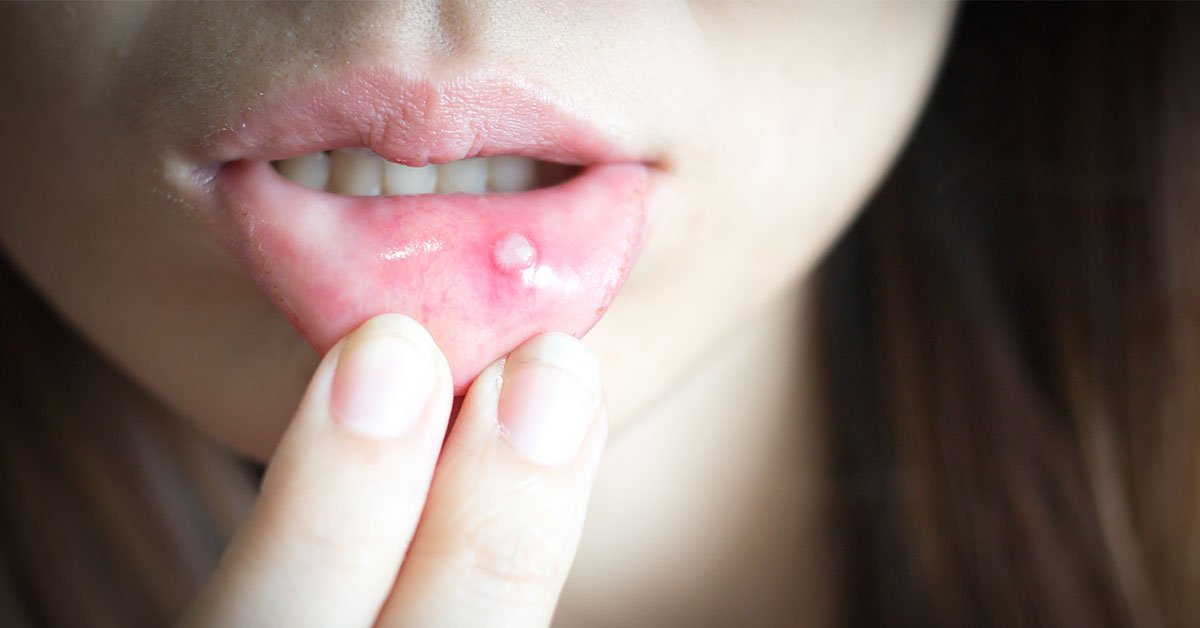If you’ve ever wondered, “why does the roof of my mouth hurt?”, you’re not alone. Pain in the roof of your mouth, also called palate pain, can range from a mild irritation to a sharp, burning discomfort that affects your daily life. It may feel sore when you eat, burn after drinking something hot, or even throb when you swallow. Because this area of your mouth is sensitive and exposed, it reacts strongly to injury, infection, or underlying health issues. Understanding the root cause is key to getting relief.
Common Causes of Pain in the Roof of the Mouth
There are several reasons why the roof of your mouth may hurt. Some causes are temporary and harmless, while others may require medical attention.
Burns from Hot Foods or Drinks
One of the most common causes of roof of mouth pain is thermal injury. Taking a big bite of hot pizza or sipping steaming coffee can burn delicate palate tissues. These burns may leave your mouth red, sore, or even blistered.
- Mild burns: usually heal within 3–5 days.
- Severe burns: may take up to 10 days and can increase infection risk.
Tip: Always test food and drinks before consuming to avoid accidental burns.
Canker Sores and Ulcers
Canker sores, also known as aphthous ulcers, can form on the roof of the mouth and cause sharp pain. These small white or yellow sores often appear because of:
- Stress and fatigue
- Nutritional deficiencies (B12, iron, folate)
- Minor injuries (biting the mouth accidentally)
- Hormonal changes
They usually heal within 7–14 days, but larger ulcers may linger longer.
Oral Infections
Infections can inflame and irritate the palate. Common culprits include:
- Strep throat: bacterial infection causing sore throat, fever, and mouth pain.
- Oral thrush: a fungal infection that leaves white patches on the palate.
- Viral infections: such as herpes simplex virus, which can cause painful blisters.
Case Study Example: A patient with recurrent sore throats discovered their roof-of-mouth pain was linked to untreated strep infections. Once antibiotics were prescribed, the palate pain resolved.
Sinus Issues and Allergies
When your sinuses are inflamed, pressure can radiate into the roof of your mouth. Postnasal drip can also irritate the soft tissues. If you notice that your mouth pain worsens during allergy season or with sinus infections, this may be the cause.
Dehydration and Dry Mouth
Your saliva acts as a natural lubricant and protector against bacteria. When you’re dehydrated or suffer from chronic dry mouth (xerostomia), the roof of your mouth can become dry, cracked, and painful. Causes of dry mouth include:
- Not drinking enough water
- Side effects of medications (like antihistamines or antidepressants)
- Smoking or alcohol consumption
- Certain medical conditions (e.g., Sjögren’s syndrome)
Dental Problems
Tooth infections or abscesses don’t just affect your gums—they can radiate pain to the roof of the mouth. Poorly fitted dentures or braces can also cause irritation.
Warning sign: If pain in the roof of your mouth comes with swollen gums, pus, or severe toothache, visit a dentist immediately.
Oral Cancer (Rare but Serious)
Although rare, persistent roof of mouth pain may signal oral cancer. Symptoms include:
- Sores that don’t heal after two weeks
- Lumps or thickened patches on the palate
- Pain while chewing or swallowing
- Unexplained bleeding
If you notice these red flags, schedule a medical evaluation right away.
Symptoms That Accompany Roof of Mouth Pain
The exact symptoms depend on the cause, but common signs include:
- Redness, swelling, or tenderness
- Ulcers or sores on the palate
- Burning or tingling sensations
- Pain when swallowing or chewing
- Fever, swollen lymph nodes, or bad breath (possible infection)
Table: Common Symptoms and Likely Causes
| Symptom | Possible Cause |
| Burning after eating | Burns from hot foods |
| White patches | Oral thrush |
| Sharp, isolated sore | Canker sore |
| Pain with sinus pressure | Sinus infection or allergies |
| Persistent sore > 2 weeks | Possible oral cancer |
When to See a Doctor or Dentist
While most causes are minor, there are times when medical help is necessary.
Red Flags You Shouldn’t Ignore
- Pain lasting longer than two weeks
- Recurrent ulcers without a clear cause
- Severe swelling, bleeding, or pus
- Difficulty eating, swallowing, or speaking
- Hard lumps or growths on the palate
Remember: Early detection makes treatment easier, especially for serious conditions.
How to Relieve Pain in the Roof of Your Mouth
If you’re struggling with palate pain, relief depends on the underlying cause.
Home Remedies
- Cold compress: Suck on ice chips or drink cool water.
- Saltwater rinse: Helps clean and heal minor sores.
- Avoid irritants: Stay away from spicy, acidic, or salty foods.
- OTC medications: Use ibuprofen or acetaminophen for pain relief.
- Topical gels: Over the counter oral gels can numb sore spots.
Medical Treatments
- Antifungals: For oral thrush.
- Antibiotics: For bacterial infections like strep throat.
- Antivirals: For herpes-related mouth pain.
- Corticosteroid rinses: For severe ulcers or inflammation.
- Dental care: Root canal, drainage, or tooth extractions for abscesses.
Preventing Pain in the Roof of Your Mouth
Prevention goes a long way in protecting your palate.
- Stay hydrated: Drink at least 8 glasses of water daily.
- Maintain oral hygiene: Brush, floss, and use antiseptic mouthwash.
- Be cautious with hot foods: Test before taking large bites.
- Eat a balanced diet: Prevent vitamin deficiencies.
- Manage stress: Reduce chances of stress-induced canker sores.
- Use a humidifier: Keep air moist to prevent dry mouth.
- Schedule regular dental visits: Catch oral problems early.
FAQs About Pain in the Roof of the Mouth
Q1: Can stress cause pain in the roof of my mouth?
Yes, stress can trigger canker sores or teeth grinding, both of which may lead to palate pain.
Q2: Why does the roof of my mouth hurt when I eat?
Eating hot, spicy, or acidic foods can irritate burns, ulcers, or sensitive tissues.
Q3: How long does it take for the roof of the mouth to heal?
Minor burns and sores heal within 7–10 days. Persistent pain may need medical care.
Q4: Is roof of mouth pain linked to sinus infections?
Yes. Sinus pressure can radiate pain to the roof of your mouth, especially during colds or allergies.
Final Thoughts on Why the Roof of Your Mouth Hurts
So, why does the roof of my mouth hurt? The answer depends on whether you burned it, developed a sore, caught an infection, or have a dental or sinus issue. While most cases are minor and heal naturally, persistent or severe pain requires professional evaluation. Protecting your mouth through good oral hygiene, hydration, and regular checkups can prevent future problems.
Your mouth is one of the most important gateways to your overall health. Treat it with care, and don’t ignore the warning signs when something feels off.

